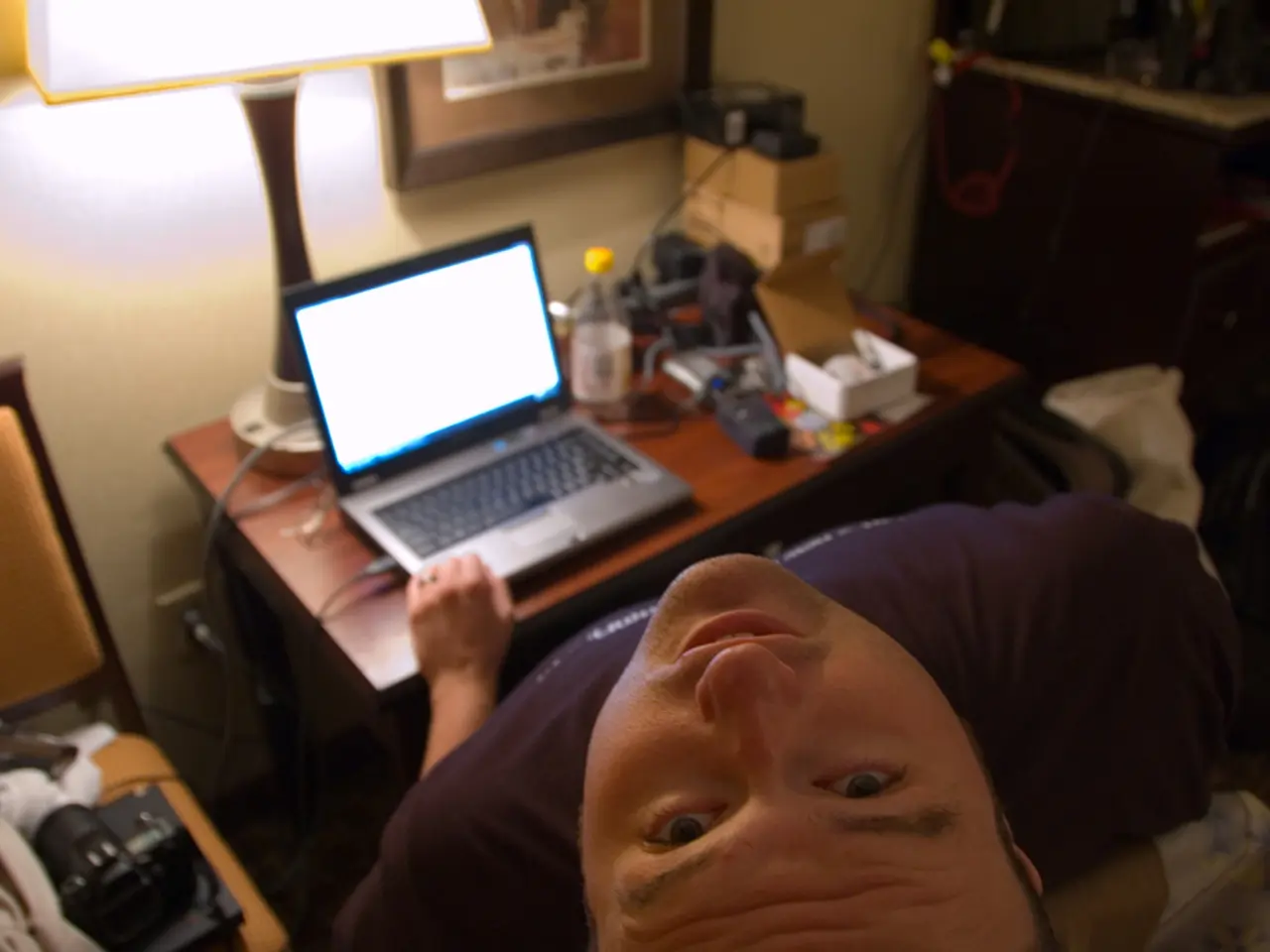Establish a Productive Starting Routine for Efficient Task Completion
Task initiation, the ability to start a new task or activity, can be challenging for many individuals, especially those with ADHD, anxiety, depression, or neurodiversity. However, with the right strategies and tools, it is possible to create an effective task initiation routine that suits your needs.
Breaking Down Tasks
Large tasks can feel overwhelming, but breaking them into smaller, manageable steps can lower initiation barriers and build motivation. Each sub-task should be achievable within about an hour, providing quick wins that boost your confidence and drive [1][5].
Establishing Routines
Having consistent schedules for daily activities reduces decision fatigue and supports task initiation by automating behaviour. Stick to a routine, and you'll find that starting tasks becomes easier [1].
Modifying Your Environment
A work-friendly environment can be achieved by decluttering, minimizing distractions, and using tools like noise-canceling headphones or a timer. Making time visible (e.g., clocks or timers) and using color or other sensory cues to stimulate focus and engagement can also be beneficial [1].
Using Visual Reminders and Task Trackers
Visual tools externalize working memory demands and clarify priorities, aiding in task initiation and completion. Consider using visual aids or task trackers to keep track of your tasks and deadlines [2][3].
Incorporating Regular Breaks and Movement
Techniques like the Pomodoro method (e.g., 25 minutes on, 5 minutes off) and physical movement breaks help restore cognitive resources and prevent burnout. Regular breaks can also help maintain focus and sustain productivity [2][5].
Practicing Self-Care
Adequate sleep, hydration, and rewarding yourself reinforce sustained focus and emotional regulation. Prioritizing self-care ensures that you have the mental and emotional resources needed to tackle your tasks effectively [1].
Additional Approaches
Setting clear expectations, offering choices to increase autonomy, modeling executive function skills (e.g., talking through planning), and collaborating with support systems for accountability and consistency can also help [3][4].
By incorporating these strategies, you can mitigate the overwhelm and cognitive load that often block task initiation, making it easier to get started and maintain progress.
Celebrating Successes
Celebrate your successes, no matter how small they may seem, to boost motivation and maintain a positive mindset. Acknowledging your achievements, even the smallest ones, can help you stay focused and motivated, making it easier to tackle the next task [6].
Creating a personalized task initiation routine involves identifying your strengths and challenges, experimenting with strategies, setting realistic goals, tracking progress, and being flexible. With the right tools and strategies, you can create a work-friendly environment that helps you stay focused and motivated.
- Large tasks can often feel overwhelming, but breaking them into smaller, achievable steps can help lower initiation barriers and build motivation for task completion.
- Maintaining consistent daily schedules, or routines, helps reduce decision fatigue and encourages easier task initiation by automating behavior.
- Modifying your work environment by decluttering, minimizing distractions, and using tools like noise-canceling headphones or a timer can contribute to a more focused and productive work session.
- Visual aids and task trackers can externalize working memory demands, clarify priorities, and aid in task initiation and completion.
- Incorporating regular breaks and movement, such as the Pomodoro technique or brief physical movement breaks, is essential for preserving cognitive resources and preventing burnout, thereby strengthening focus and sustaining productivity.
- Adequate sleep, hydration, and rewarding oneself can reinforce sustained focus and emotional regulation, making it easier to tackle challenging tasks with a clear mind.
- Setting clear expectations, offering choices to increase autonomy, modeling executive function skills, and collaborating with support systems are additional approaches to aid in task initiation.
- By experimenting with these strategies, setting realistic goals, tracking progress, and being flexible, individuals can develop a personalized task initiation routine that caters to their unique strengths and challenges.
- Celebrating successes, no matter how small, boosts motivation and maintains a positive mindset, making it easier to start the next task and continue the journey of personal growth, career development, and self-improvement, enhancing mental health, nutrition, fitness, education, and overall health-and-wellness.




